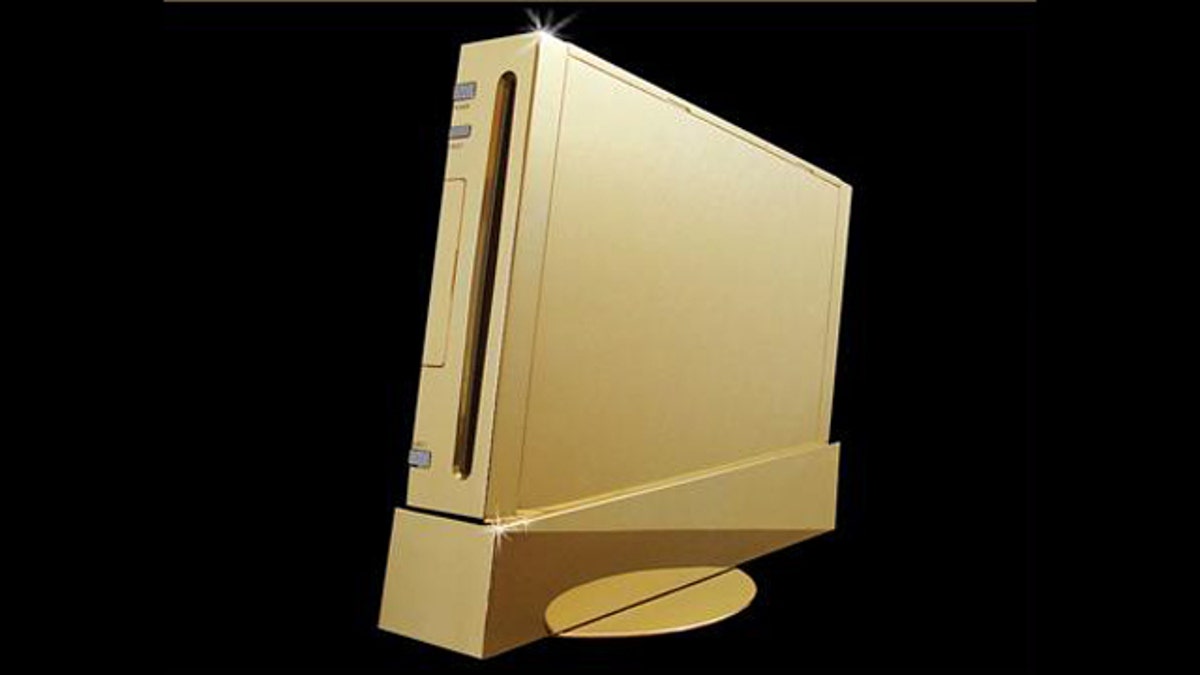
(Stuart Hughes)
Back in 1972, Atari's Pong was a rec-room phenom -- and the first computer in most homes.
Since then, video game consoles have continued to push the technology envelope far ahead of personal computers, now responding to a wave of your hand, for example, or the sound of your voice.
But consoles like Nintendo's Wii have lost some of their luster of late and are under attack from all sides.
Countless other devices are now used for gaming, after all, ranging from iPhones to iPads, TVs to tablets. There are massively multiplayer games like World of Warcraft with 12 million players on the PC. Zynga's Facebook franchise FarmVille is such a hit that investors have pegged the company at nearly $10 billion.
Worse, the consoles themselves are being used less and less for games: People now spend about 30 hours a month or more watching movies on the Xbox platform -- that's time not spent playing Halo or Grand Theft Auto.
Granted, video gaming is still a multi-billion dollar business. And each of the major gaming consoles has seen its fortunes peak when the introduction of a new technology. Sony's PlayStation 2 got parents to pony up in 2000 because it included a DVD player (how futuristic!) for mom and dad to watch movies on. More recently, Microsoft's Kinect add-on for the Xbox 360 became the fastest selling consumer electronics product ever.
Nevertheless, for years game console makers have wanted to become more than just play things. They wanted to become the centerpiece of the home entertainment system, with streaming movies via Netflix and links to Facebook, Twitter, Pandora and on-demand music and video.
Many have discovered just how difficult it can be maintain these services; Sony's entire gaming and entertainment network has been out of service for 5 days and counting. Meanwhile, creating games for these powerful consoles can cost millions, while creating a game for the iPhone can cost as little as a few thousand dollars.
Of all the console makers, Nintendo may be facing the most immediate pressure to innovate and update. It was once far and away the best selling console but is now often eclipsed by the Xbox 360 or PlayStation 3. The company said Monday that it was hard at work on a new Nintendo system. It won't be available until 2012 -- but the company has already dropped the price of its machine by $30 to just $170.
At the E3 tradeshow in California this June, Nintendo says it will demonstrate the new system, and what it will feature is anybody's guess. Speculation has revolved around high-definition video -- a necessity these days -- as well as features to fend off the rise of the iPhone, such as a controller with a touch screen. It may even include built-in cameras to match some of the gesture and face recognition features of Microsoft's Kinect (features the Wii paved the way for, of course).
Leveraging the value of Nintendo's gaming heritage seems a necessity. But how? Certainly making it easier to connect its wildly popular portable DS systems to the new console should be a priority. Microsoft has no serious portable gaming option, and Sony's efforts in this arena have made several missteps.
Month to month, Nintendo's DS is often the top-selling gaming device, and its 3DS has already sold nearly 400,000 units in less than a month since its introduction. Making it easier to use those handheld gaming devices with a big screen could be a blockbuster move. Just imagine what it would be like, say, playing one of the catchy 3D augmented reality games from the 3DS on a big screen. Using the Nintendo 3DS as a portable 3D camera and gaming controller would certainly offer something new to gamers.
If Nintendo doesn't introduce something truly new and innovative, could the company disappear from the game console market it once helped invent? It seems unlikely: The popularity of the Super Mario franchise alone should keep people coming back, after all. On the other hand, nowadays people seem to consume high-tech gadgets and spit them out like Furbies. Just look at what happened to the once mighty Guitar Hero and Rock Band franchises.
Nintendo could always play the nostalgia card. Pong was fun back in the '70s, after all. And you know what? It's still fun now -- even though it doesn't have any 3D graphics, avatars or motion controls.
Follow John R. Quain on Twitter @jqontech or find more tech coverage at J-Q.com.








































